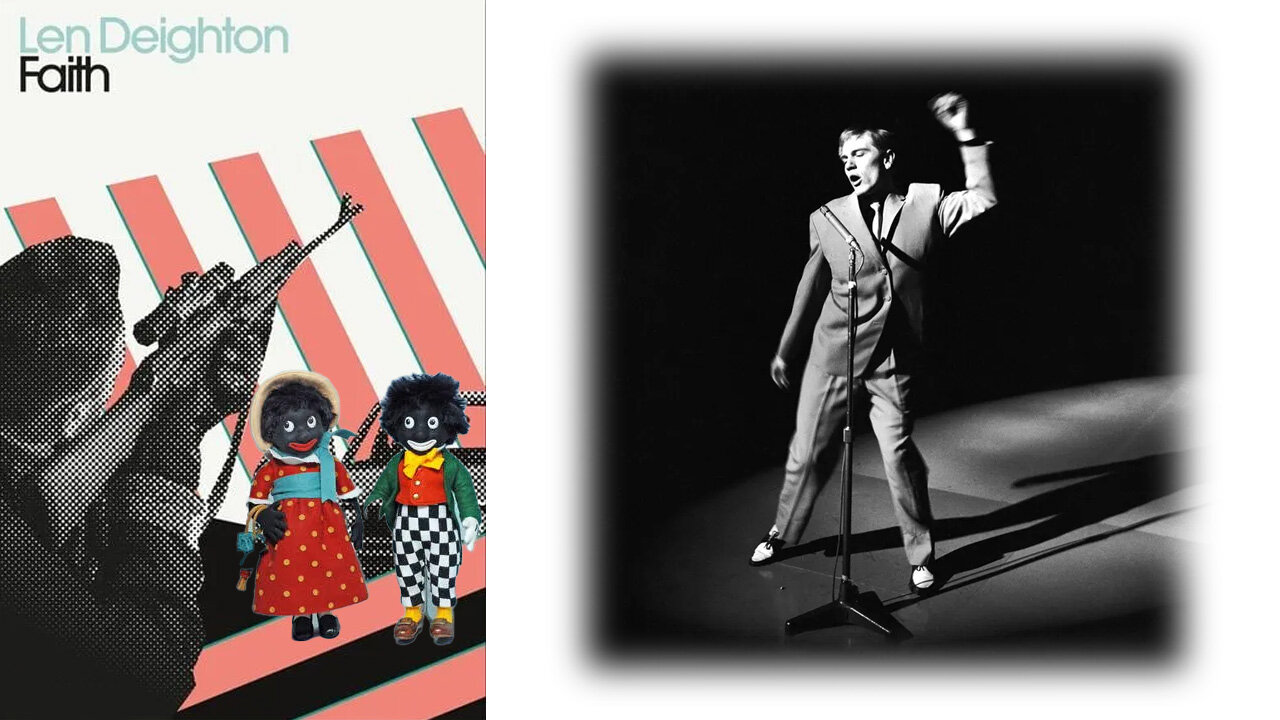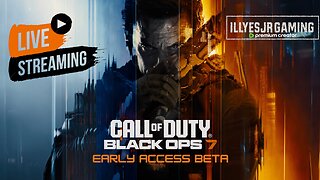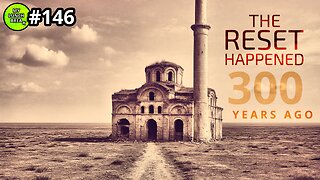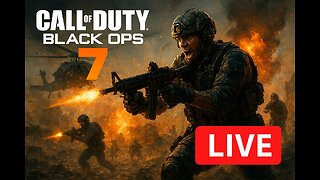Premium Only Content

'Faith' (1994) by Len Deighton
Len Deighton's, 'Faith', marks the beginning of the final Bernard Samson trilogy, following the earlier 'Game', 'Set', and 'Match' and 'Hook', 'Line', and 'Sinker' trilogies. As with much of Deighton’s Samson saga, 'Faith' is not a conventional espionage thriller; rather, it is a psychological, layered study of loyalty, betrayal, and the corrosive bureaucracy of intelligence work. The book stands less as a standalone novel and more as a continuation — a chapter in a long, slow-burn narrative that rewards patience and a taste for subtlety over spectacle.
Set in the mid-1980s Cold War twilight, 'Faith' finds Bernard Samson still embroiled in the tangled web of the British Secret Intelligence Service. He is jaded, weary, and ever suspicious — not just of the Russians, but of his own colleagues. In this installment, Bernard is tasked with facilitating the defection of a KGB officer in East Germany — a routine operation that quickly becomes anything but. The operation is fraught with complications, contradictions, and creeping suspicions that Bernard is once again being manipulated or used as bait. As ever, the mission serves primarily as a vehicle for Deighton to explore office politics, personal grudges, and emotional entanglements rather than action set-pieces.
What makes 'Faith' compelling is not the operation itself but how it reveals character — especially Bernard’s. Deighton continues to use Bernard’s first-person narration to masterful effect. We’re always inside Bernard’s head: sardonic, cynical, and often unreliable. He questions everything — orders, motives, and even his own memories. The espionage becomes secondary to the slow accretion of detail: strained conversations, long-standing rivalries, and the erosion of trust. Bernard’s relationship with his superiors, his lover Gloria, and the ghost of his traitorous wife Fiona all create a tense, emotionally loaded backdrop to what should be a simple job.
'Faith' also shines in its dialogue and setting. Deighton captures the drab, bureaucratic, smoky world of Cold War Europe with precision. Berlin, London, and the dead zones between East and West Germany are rendered with a journalist’s eye for detail and a novelist’s instinct for atmosphere. The book has a certain lived-in quality — the characters have history, and the reader feels it. At times, this can be disorienting for new readers unfamiliar with the previous books; 'Faith' assumes knowledge. Names are dropped, allegiances hinted at, and past betrayals referenced without much handholding.
One of the book’s major themes is disillusionment. Bernard is caught between two collapsing worlds: the fading relevance of Cold War espionage and the breakdown of his own emotional life. He doesn’t trust anyone, and increasingly, he doesn’t trust himself. Deighton resists the temptation to provide easy answers or heroic redemption. The intelligence world in 'Faith' is not one of clear victories or simple morality. It is murky, compromised, and deeply human.
Critics of 'Faith' sometimes point to its lack of pace. The plot unfolds slowly, with many scenes focused on meetings, speculation, and conversations laced with innuendo. But this is Deighton’s style: his books are about the space between events, the things unsaid, and the long consequences of past choices. He doesn’t thrill in the way Ian Fleming does — instead, he probes, analyzes, and dissects the cost of espionage on the human soul.
In conclusion, 'Faith' is a dense, intelligent, and rewarding novel for readers willing to engage with its subtleties. It isn’t a book that shouts — it mutters, sighs, and smirks. Deighton’s prose is taut and cynical, his characters morally ambiguous, and his world as grey and compromised as the Berlin skies. For fans of Bernard Samson, 'Faith' is an essential and haunting installment. For newcomers, it is a signal that this is no ordinary spy series, but a deeply literary meditation on trust, history, and the slow corrosion of ideals.
-
 1:19:51
1:19:51
World2Briggs
3 hours ago $1.11 earnedThe US This Week
15K2 -
 LIVE
LIVE
Joker Effect
58 minutes ago"MAKE STREAMING GREAT AGAIN" - Brands Step Up Finally. Birth of Rumble Community. Taking Leadership
449 watching -
 LIVE
LIVE
Illyes Jr Gaming
4 hours ago"Machine Gun" Takes On BLACK OPS 7 Beta DAY 3!!!
28 watching -
 LIVE
LIVE
Damysus Gaming
1 hour agoBorderlands 4 - AMON Vs Timekeeper!! Lets Grind This OUT!!
25 watching -
 3:10:06
3:10:06
Nikko Ortiz
7 hours agoHAMAS Gaza Peace Deal And MORE.... Brutally Honest EP #17 | Rumble LIVE
105K53 -
 25:10
25:10
MYLUNCHBREAK CHANNEL PAGE
8 hours agoIstanbul Should NOT Exist - Pt 4
36.6K13 -
 7:11:36
7:11:36
tminnzy
7 hours agoDROPS ON - BO7 BETA ALL DAY! #BlackOps7
56.7K8 -
 1:35:48
1:35:48
Jeff Ahern
7 hours ago $10.59 earnedThe Saturday Show with Jeff Ahern
76.1K5 -

GritsGG
8 hours agoWarzone Win Grinding! Most Wins in WORLD! 3680+!
42.2K2 -
 55:45
55:45
Tactical Advisor
7 hours agoNew Product Alert! | Vault Room Live Stream 040
61.4K5
